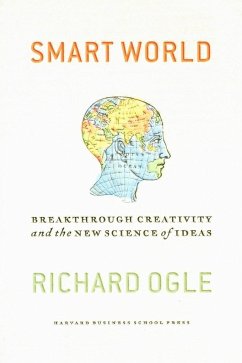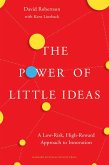Our ideas about creativity, and particularly the most important kind--what Richard Ogle calls "breakthrough creativity"--are governed by a long-standing and deep-seated myth: "the mind inside the head." From ancient times, philosphers of mind have held that important ideas and insights come from the individual brains of geniuses with awesome rational powers, whose minds seem to function on a higher plane than those of normal folk.In recent years, however, as advances in cognitive science and network science have highlighted the importance of the external world, the social, cultural, and economic context in which ideas are generated, a classic paradigm shift has occurred. Mihaly Csikszentmihalyi has posited the idea of the "extended mind," radically suggesting that the source of creativity lies not inside of our heads and brains, but outside them, in the connections between people and ideas. There has also been a concurrent, growing recognition of the role that imagination and intuition play in scientific breakthroughs, where in earlier times it was thought that superior rational thinking and logic were responsible for such advances. In The Mind Out There, Richard Ogle describes this paradigm shift and crystallizes its nature and implications for the first time. He argues that developments in the study of cognitive science, network science, and complexity, now allow us to see and understand how breakthrough ideas happen in a much clearer way, offering the beginnings of "a new science of ideas."The key to this science resides in what the author calls "idea-spaces," a set of nodes in a network of people (and their ideas) that cohere and take on a distinctive set of characteristics anddynamics leading to the generation of breakthrough ideas. These spaces are
Hinweis: Dieser Artikel kann nur an eine deutsche Lieferadresse ausgeliefert werden.
Hinweis: Dieser Artikel kann nur an eine deutsche Lieferadresse ausgeliefert werden.








